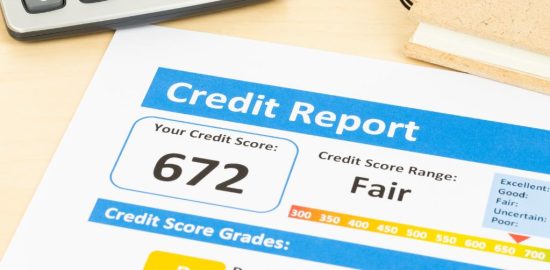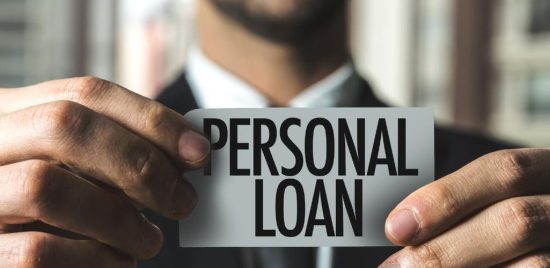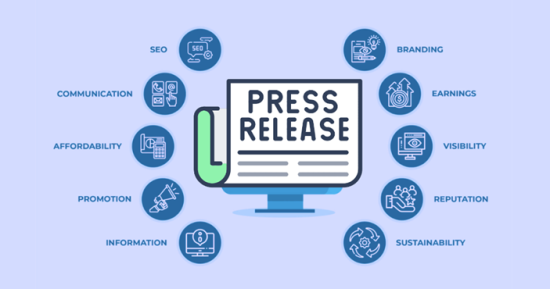
If your credit score falls within the “fair” range, typically between 630 and 689, you may find it challenging to secure the best loan terms and interest rates. However, there are still several options available that can provide fair-credit borrowers with access to the financing they need. In this article, we’ll explore the top loans for fair credit, the impact of your credit score on loan rates, and strategies to improve your creditworthiness and ultimately qualify for better loan offers.
A fair credit score is generally from 630 to 689. Lenders can have their own definitions of fair credit, which may be informed by which credit scoring company they use to evaluate applications. FICO defines fair credit as 580 to 669, while VantageScore puts “near prime” scores between 601 and 660. Some lenders review information from both companies to determine whether an applicant qualifies.
Whether you’re looking to consolidate debt, finance a major purchase, or cover unexpected expenses, understanding the best loans for fair credit can help you make an informed decision and secure the financing you need. As you explore your options, keep in mind that your credit score, along with your income, employment history, and other financial factors, will play a significant role in determining your eligibility and the terms of your loan.
What is Fair Credit?

When it comes to personal finance, understanding the concept of “fair credit” is crucial. Fair credit typically refers to credit scores that fall within the range of 630 to 689, according to the FICO and VantageScore credit scoring models. This credit score range indicates that an individual has a history of responsible financial management, but may have some blemishes or a limited credit history that prevents them from achieving a higher “good” credit score.
FICO Definition of Fair Credit
FICO, one of the leading credit scoring companies, defines fair credit as a score range of 580 to 669. This score range suggests that the borrower has a track record of making on-time payments, but may have experienced some financial challenges in the past, such as missed payments or high debt levels.
VantageScore Definition of Fair Credit
VantageScore, another major credit scoring company, categorizes credit scores between 601 and 660 as “near prime,” which is often synonymous with fair credit. This range indicates that the borrower has a decent credit history, but may face higher interest rates or more stringent lending requirements compared to those with “good” or “excellent” credit scores.
Understanding the specific definitions of fair credit from the leading scoring models can help individuals assess their creditworthiness and make informed decisions when applying for various types of loans or financial products. It’s important to note that lenders may have their own internal definitions of fair credit, which can vary based on their risk tolerance and underwriting criteria.
How Fair Credit Affects Your Personal Loan Rate?
When applying for a personal loan, your credit score is often a key factor in determining the interest rate you’ll be offered. A lower credit score due to factors like missed payments or a thin credit profile may indicate to lenders that you pose a higher default risk, leading them to charge higher annual percentage rates (APRs) to compensate for that risk.
Average Personal Loan Rates by Credit Score
Borrowers with fair credit, generally defined as a score between 630-689, can typically expect to pay higher interest rates on personal loans compared to those with good or excellent credit. According to data from the Federal Reserve, the average APR for a 24-month personal loan was 10.68% for borrowers with fair credit, versus 8.73% for those with good credit (690-719) and 7.21% for those with excellent credit (720 or above) as of Q1 2023.
Calculating Your Fair-Credit Loan Rate
Your specific personal loan rate if you have fair credit will depend on factors beyond just your credit score, including your income, debt-to-income ratio, and the lender’s own underwriting criteria.
Checking your credit reports, reducing outstanding debts, and shopping around with multiple lenders can help you secure the best possible rate on a personal loan with a fair credit score. Improving your credit score into the good or excellent range may also open up access to lower-interest loan options.
How to Compare Loans for Fair Credit?
When searching for a personal loan with fair credit, it’s important to compare the key features to ensure you find the best option. Here are the top factors to consider:
- Annual Percentage Rate (APR); The APR is the true cost of borrowing, taking into account the interest rate as well as any fees associated with the loan. Borrowers with fair credit can expect APRs in the range of 15% to 35%, so it’s crucial to shop around and compare offers to get the lowest rate possible. A lower APR means lower monthly payments and less overall interest paid over the life of the loan.
- Monthly Payments; Calculate the estimated monthly payment based on the loan amount, interest rate, and repayment term. Ensure the payment fits comfortably within your budget to avoid difficulty making on-time payments.
- Borrower Requirements; Lenders may have minimum credit score, income, or debt-to-income ratio requirements that borrowers with fair credit must meet. Review the lender’s criteria closely to determine if you qualify before applying.
- Repayment Term; Loan terms typically range from 12 to 84 months. Shorter terms mean higher monthly payments but lower overall interest costs, while longer terms result in lower monthly bills but more interest paid over time. Choose the term that aligns best with your financial situation and goals.
- Fees; Be aware of any origination, application, or prepayment fees the lender may charge. These can add to the cost of the loan, so factor them into your comparison.
- Other Features to Consider; Additional perks like flexible payment options, the ability to check your rate without a hard credit check, and customer service quality can also set lenders apart. Evaluate which features are most important to you.
Where to Get a Personal Loan with Fair Credit?

If you have a fair credit score, typically ranging from 630 to 689, you may still be able to qualify for a personal loan. Your best options for securing a personal loan with fair credit are credit unions and online lenders. Credit unions in particular are often more lenient in their lending criteria and may be willing to work with borrowers who have a fair credit rating.
While a strong relationship with a local bank can also go a long way, credit unions and online lenders are generally more accessible for those with fair credit. These lenders may be able to offer you more competitive interest rates and terms compared to traditional banks, which tend to have stricter requirements. By exploring your options with credit unions and online lenders, you can increase your chances of getting a loan if you have fair credit or getting a loan with a fair credit rating.
How to Get a Personal Loan with Fair Credit?
Securing a personal loan with fair credit may require a bit more effort, but it’s certainly not impossible. By taking the right steps, you can increase your chances of getting approved and securing favorable terms. Let’s explore the key steps to getting a personal loan when you have a fair credit score. Can I get a loan with a fair credit rating? This is a common question asked by individuals who have a credit score of around 650. The good news is that yes, it is possible to get a personal loan with fair credit. While it may come with certain challenges, there are steps you can take to improve your chances of approval and secure favorable terms.
Review Your Credit Reports
Start by thoroughly reviewing your credit reports from all three major credit bureaus – Equifax, Experian, and TransUnion. This will help you identify any potential errors or opportunities to improve your credit profile. If your score is already on the rise, consider taking extra time to build it further before applying for a personal loan. Reviewing your credit reports regularly is an essential step in maintaining good financial health. But what exactly should you be looking for? Are you wondering if a fair credit score is okay? Or what the limit is for a fair credit score? And can you get a loan with a 650 credit score? Let’s dive into these questions and shed some light on the matter.
Check Your Budget
Carefully evaluate your monthly budget to determine how much you can realistically afford to borrow and repay. Consider your existing debts, income, and other financial obligations to ensure you don’t overcommit yourself. Lenders will also scrutinize your debt-to-income ratio, so keeping it in check is crucial. One of the most important aspects of personal finance is understanding and managing your budget. It’s essential to regularly check your budget to ensure you are staying on track and not overspending. Keeping a close eye on your finances will not only help you maintain a healthy financial state but also prevent any unwanted surprises in the future.
Compare Lender Requirements
Different lenders have varying credit score requirements and may have different definitions of “fair credit.” Research and compare the criteria of multiple lenders to find the ones that are most likely to approve your application with your current credit profile. This will help you focus your efforts on the most suitable options. What is the limit for a fair credit score? Is a fair credit score okay? Can you get a loan with a 650 credit score? These questions often cross the minds of individuals who are seeking a loan. The good news is that it is possible to secure a loan even with a fair credit score or a score around 650. However, the lender requirements may vary.
Pre-qualify with Lenders
Many lenders offer pre-qualification tools that allow you to check your eligibility and estimated loan terms without impacting your credit score. Utilize these tools to get a sense of the rates and terms you may qualify for before formally applying. One of the first questions many individuals have when considering applying for a loan is, “Can I get a loan with a 650 credit score?” The answer to this question depends on a variety of factors, including the lender’s criteria and the type of loan you are seeking. However, having a fair credit score should not discourage you from exploring your options.
A fair credit score typically falls within the range of 650 to 699. While it may not be considered excellent or very good, it is still very much okay for many lenders. Each lender sets their own credit score requirements, and some may be more lenient than others. Additionally, lenders take into account other factors such as your income, employment history, and debt-to-income ratio when considering your loan application.
Submit Your Application
Once you’ve identified the lender(s) that best fit your needs, gather all the required documentation and submit your formal loan application. Be prepared to provide details about your income, employment, and existing debts. Lenders will thoroughly review your financial information to determine if you’re a good candidate for a personal loan.
By following these steps, you can improve your chances of securing a personal loan despite having a fair credit score. Remember, patience and persistence are key, as building credit takes time. With the right approach, you can navigate the process and find a loan that meets your needs.
Best loans for fair credit

Personal loans can be a viable option for individuals with fair credit, as they offer flexibility and versatility in addressing various financial needs. It can be used for a wide range of purposes, including debt consolidation, home renovations, unexpected expenses, or even major purchases. This makes them an attractive choice for those who may not qualify for traditional bank loans or credit cards due to their credit profile.
When exploring options, it’s essential to consider factors such as the annual percentage rate (APR), monthly payments, and overall repayment terms. By carefully comparing these elements, borrowers can find a loan that aligns with their financial capabilities and goals. Additionally, understanding the lender’s specific requirements and borrower qualifications can help ensure a seamless application process and increase the chances of approval.
One of the key advantages is their ability to provide access to funds for individuals who may not have the highest credit scores. This can be particularly beneficial for those who need to cover unexpected expenses or consolidate existing debts, as it can help them achieve their financial objectives without the limitations of a less-than-perfect credit history.
Overall, It can be a valuable tool for those seeking flexible financing options, providing an opportunity to obtain the necessary funds while working towards improving their overall credit profile over time.
Improving Your Fair Credit Score
If you have a fair credit score, typically ranging from 630 to 689, there are several steps you can take to improve your standing and potentially gain access to better loan terms and interest rates. By focusing on responsible financial habits, you can build your credit and enhance your overall financial profile.
Pay Bills on Time
One of the most crucial factors in maintaining a healthy credit score is consistently paying your bills on time. Payment history accounts for a significant portion of your credit score calculation, so making timely payments on credit cards, loans, and other financial obligations is essential. Set up automatic payments or payment reminders to ensure you never miss a due date.
Paying bills on time is crucial for maintaining good financial health. Not only does it prevent late fees and penalties, but it also impacts your credit score. When it comes to obtaining loans, one may wonder, “What is the easiest loan to get approved for?” While different lenders have varying criteria, having a fair credit score can still get you approved for certain loans. A fair credit score typically falls within the range of 580-669.
Become an Authorized User
Becoming an authorized user on someone else’s credit card account can also help improve your credit score. If the primary account holder has a long history of responsible usage and low credit utilization, that positive information can be reflected on your credit report, potentially boosting your score.This is why becoming an authorized user on someone else’s credit card can be a great strategy for improving your credit. By piggybacking off their good credit habits, you may be able to increase your chances of getting approved for loans and other forms of credit.
Pay Off Existing Debt
Reducing your overall debt load is another effective way to enhance your credit score. Focus on paying down balances on credit cards and loans, as high levels of debt can negatively impact your credit utilization ratio, a key factor in credit scoring models.
If you’re struggling with existing debt and wondering how to pay it off, you’re not alone. Many people find themselves in this situation, but the good news is that there are solutions available. One common question that comes up is, “Can I get a loan with a fair credit rating?” The answer is, it depends. While having fair credit may limit your options, some lenders may still be willing to work with you.
Request a Credit Limit Increase
If you have a good payment history and low credit utilization, you may be able to request a credit limit increase from your credit card issuers. This can help improve your credit utilization ratio, as a higher limit allows you to keep your balances low compared to your total available credit. If you’re looking to request a credit limit increase, it’s important to understand how your credit score plays a role in the decision-making process.
First, let’s address the question, “What is a 639 credit score?” A credit score of 639 falls into the category of fair credit. While it’s not the highest score, it also isn’t the lowest. However, when it comes to requesting a credit limit increase, your credit score is just one factor that lenders consider.
Alternatives to Personal Loans for Fair Credit
If you can’t qualify for a personal loan or aren’t getting the interest rate you want, there are alternative options to consider. Some viable alternatives for those with fair credit include home equity loans, secured personal loans, and salary advances. If you have a fair credit score, you may find yourself wondering what options are available to you when it comes to borrowing money.
Fair credit typically falls between 580 and 669, and while it may not be considered excellent, it’s still possible to secure a loan. So, what is the limit for a fair credit score? Generally, fair credit is enough to qualify for certain loans, but you may face higher interest rates compared to those with excellent credit.
One alternative for individuals with fair credit is a home equity loan. If you own a home and have built up some equity, you can use that equity as collateral for a loan. The interest rates on home equity loans are typically lower than those for personal loans, making it an attractive option.
Home Equity Loans
A home equity loan allows you to borrow against the equity you’ve built up in your home. Since your home serves as collateral, home equity loans often come with lower interest rates than unsecured personal loans, even for borrowers with fair credit. This can make them an attractive option for those who qualify and are comfortable using their home as security. Home equity loans can be a viable option for homeowners who need a large sum of money for various purposes, such as home improvements, debt consolidation, or unexpected expenses. Unlike other types of loans, home equity loans offer lower interest rates, making them an appealing choice for those who have fair credit.
Secured Personal Loans

Another alternative to consider is a secured personal loan. With a secured loan, you put up an asset like a vehicle, savings account, or even the fixtures in your home as collateral. This added security makes it easier to qualify and often results in better interest rates than an unsecured personal loan, even for those with fair credit scores of 600 or 625. Secured personal loans can be a reliable option for individuals looking to borrow money, even if they have a fair credit score. Unlike unsecured loans, secured loans require collateral, such as a car or a home. This collateral acts as a security for the lender, allowing them to offer more favorable terms to borrowers.
Salary Advances
For those in a pinch, some employers offer salary advance programs that allow you to access a portion of your earned but unpaid wages before your next paycheck. While not a long-term solution, a salary advance can provide quick access to funds without a credit check, making it a viable option for the easiest loan to get approved for when you have fair credit and need cash quickly.
Is fair credit score okay when applying for a salary advance? The answer is yes! Unlike traditional loans, salary advances do not typically require a credit check. This means that even if you have a fair credit score, you can still be eligible for a salary advance. So, if you find yourself in need of some extra cash and have fair credit, a salary advance could be an ideal option for you.
Factors to Consider When Choosing a Lender
When selecting a lender for a fair-credit personal loan, it’s crucial to consider various factors that can impact the overall cost and terms of the loan. Two key elements to assess are the loan costs and the annual percentage rate (APR).When choosing a lender for a personal loan, it’s important to first understand your own credit score. You may wonder, “What is a 639 credit score?” A credit score of 639 falls in the “fair” range and may affect your ability to secure a loan. However, it doesn’t necessarily mean you won’t qualify for a loan altogether. Lenders often consider multiple factors, such as income, employment history, and debt-to-income ratio, along with the credit score.
Loan Costs
Examine the lender’s fee structure carefully, including any origination fees, application fees, or prepayment penalties. These costs can significantly increase the total amount you’ll repay over the life of the loan, so it’s important to compare them across multiple lenders to find the most cost-effective option. One of the biggest factors that affects the cost of a loan is your credit score.
Many people wonder, “Can I get a loan if I have fair credit?” The answer is yes, but it may come with a higher interest rate. Lenders use credit scores to assess the risk of lending to an individual. So, if you have a fair credit score, which typically ranges between 580 and 669, you might not qualify for the best rates and terms.
Annual Percentage
The APR reflects the true cost of borrowing, including the interest rate and any fees. Lenders are required to disclose the APR, which allows you to make an apples-to-apples comparison of the overall cost of the loan. When evaluating lenders, focus on finding the lowest APR you can qualify for based on your fair credit profile.
By carefully considering these factors, you can make an informed decision and secure a personal loan that aligns with your financial needs and goals, despite your fair credit standing. When it comes to obtaining a loan, one of the most important factors to consider is the annual percentage rate (APR). The APR represents the annual cost of borrowing, including both the interest rate and any additional fees or charges associated with the loan. It is crucial to understand how the APR affects your overall loan cost and to compare rates from different lenders to ensure you are getting the best deal possible.
FAQ: Best Loans for Fair Credit
What are the best loans for fair credit?
The best loans for fair credit typically including personal loans from the credit unions, online lenders, and peer-to-peer lending platforms that cater to borrowers with credit scores in the mid-600s.
How can I find the best loans for fair credit?
To find the best loans for fair credit, compare the offers from different lenders, considering interest rates, fees, and repayment terms, and look for lenders specializing in fair credit borrowers.
Do credit unions offer the best loans for fair credit?
Yes, credit unions often offer the best loans for fair credit, with lower interest rates and more flexible terms than traditional banks.
Can online lenders provide the best loans for fair credit?
Online lenders can give some of the best loans for fair credit, offering competitive rates, quick approval processes, and tailored options for fair credit borrowers.
What should I consider when looking for the best loans for fair credit?
When looking for the best loans for fair credit, consider the interest rate, repayment terms, fees, and the lender’s reputation to ensure you get a fair and manageable loan.








